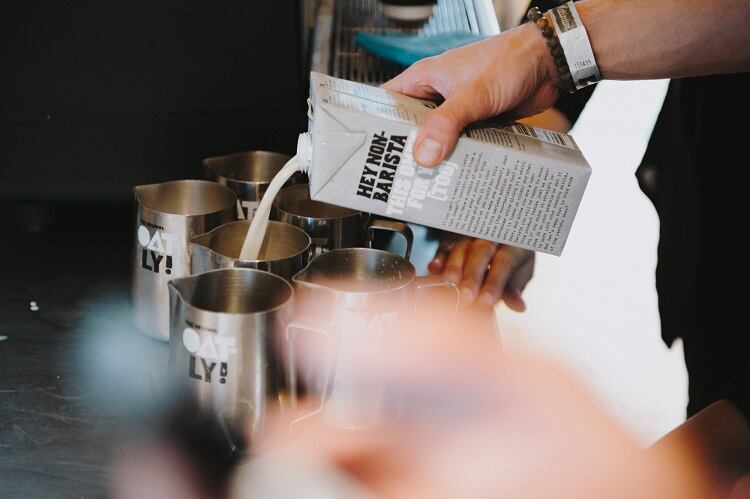The advertising campaign featured on television, YouTube, and via video-on-demand (VOD) platforms in May 2021, as part of the company’s brand relaunch.
In animation format, Innocent Drinks depicted a brown-hued, polluted environment being ‘messed’ up by humankind. The characters in the advert decide to ‘fix up’ the environment, and in doing so, the animation’s palette becomes greener and more colourful.
Depictions of trees being planted are accompanied by images of fruit being squeezed into an Innocent Drinks bottle.
The campaign received 26 complaints in total, one of which came from Extinction Rebellion sister group Plastics Rebellion. The advocacy group challenged whether the ad exaggerated the total environmental benefit of the products.
‘The most offensive form of greenwashing’
When the advert came out last year, Plastics Rebellion was vocal about its judgement: “The crudity of the greenwashing is a new low,” it noted.
“Grow fruit in a monoculture, you’re going to deplete soil, you’re going to suck the tropics dry for your bananas and your mangos, you’re going to bottle in it plastic, and that’s going to fix up the planet?”
Plastics rebellion penned a letter to Innocent Drinks at the time, stating it was ‘incensed’ by the brand relaunch advert.
“Its stated aim, to inspire people to take their own small steps to help the planet and show how collective action can lead to positive change, represents the worst and most offensive form of greenwashing.
“Buying fruity, sugary drinks in plastic bottles is not going to fix up the planet.”
Misleading advertising
According to the CAP and BCAP Codes, the basis of environmental claims must be clear.
However, this was not the case in Innocent’s adverts, according to the ASA, which considered a ‘strong’ association was drawn between their products and a positive impact on the environment.
The advertising watchdog judged that ‘many’ consumers would interpret the overall presentation of the ad to mean that purchasing Innocent products was a choice which would have a positive environmental impact.
The ASA continued: “Although we acknowledged that Innocent were undertaking various actions which were aimed at reducing the environmental impacts of their products, that did not demonstrate that their products had a net positive environmental impact over their full lifecycles.
“We also noted that their drink bottles included non-recycled plastic and that the extraction of raw materials and subsequent processing of those materials in order to produce the bottle would have a negative impact on the environment.”
ASA, which ruled the ads ‘misleading’, asked Innocent to remove the advert. Innocent did so ‘promptly’, we were told. The company did not receive a fine.
Innocent Drinks responds
Innocent Drinks responded to the ASA that there was no suggestion in the ad, through statements or imagery, that purchasing Innocent products themselves would lead to a positive environment impact.
The brand is engaged environmentally as a signatory to the Business Ambition for 1.5°C, and by using recyclable plastic in its drink bottles.
“We’re disappointed to see the ruling from the ASA. Our advert was always intended to highlight important global environmental issues and the need for collective action to make a change,” Innocent noted in a statement. “We transparently share more about the work that we do on sustainability on our website.”
The brand said it remains committed to its new platform ‘Little Drinks Big Dreams’, as it ‘resonates well’ with consumers and enables the business to communicate on big environmental and health issues. “However, we will not be re-running this particular ad.”



